
Saint-Nicolas: The Enchanting Heart of La Rochelle
Nestled in the picturesque town of La Rochelle, Saint-Nicolas is a charming neighbourhood that beckons visitors with its rich history, vibrant culture, and stunning architecture. Known for its narrow cobblestone streets and colourful facades, this area exudes an old-world charm that is both captivating and inviting. Stepping into Saint-Nicolas is like stepping back in time. The neighbourhood is home to the iconic Saint-Nicolas Tower, a medieval structure that offers sweeping views of the harbour and the town. As you wander through the streets, you'll discover a variety of quaint shops, bustling markets, and delightful cafes where you can savour local delicacies and soak in the atmosphere. Saint-Nicolas is not just about its historical allure; it is also a hub of cultural activity. The neighbourhood hosts numerous festivals and events throughout the year, making it a lively and dynamic place to visit. Whether you are a history buff, a foodie, or simply someone who enjoys exploring new places, Saint-Nicolas has something to offer everyone.
Local tips in Saint-Nicolas
- Visit early in the morning to avoid crowds and enjoy the peaceful atmosphere.
- Don't miss the market on Saturdays for fresh produce and local crafts.
- Try the seafood at local cafes; it's a specialty of the region.
- Wear comfortable shoes as the cobblestone streets can be uneven.
- Check the local event calendar to catch one of the neighbourhood's many festivals.
Saint-Nicolas: The Enchanting Heart of La Rochelle
Nestled in the picturesque town of La Rochelle, Saint-Nicolas is a charming neighbourhood that beckons visitors with its rich history, vibrant culture, and stunning architecture. Known for its narrow cobblestone streets and colourful facades, this area exudes an old-world charm that is both captivating and inviting. Stepping into Saint-Nicolas is like stepping back in time. The neighbourhood is home to the iconic Saint-Nicolas Tower, a medieval structure that offers sweeping views of the harbour and the town. As you wander through the streets, you'll discover a variety of quaint shops, bustling markets, and delightful cafes where you can savour local delicacies and soak in the atmosphere. Saint-Nicolas is not just about its historical allure; it is also a hub of cultural activity. The neighbourhood hosts numerous festivals and events throughout the year, making it a lively and dynamic place to visit. Whether you are a history buff, a foodie, or simply someone who enjoys exploring new places, Saint-Nicolas has something to offer everyone.
Iconic landmarks you can’t miss
La Rochelle Aquarium
Discover over 12,000 marine animals from around the world at one of Europe's largest aquariums, located in the heart of La Rochelle.
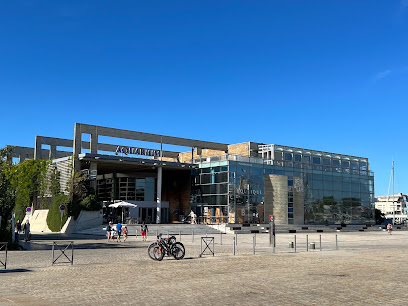
The Lantern Tower of La Rochelle
Explore La Rochelle's Lantern Tower: a medieval lighthouse, historic prison, and iconic landmark with breathtaking panoramic views.
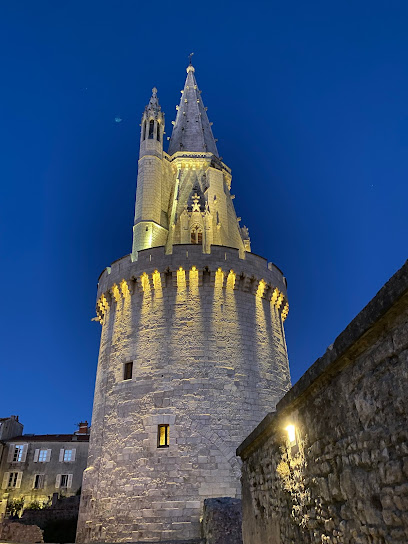
St. Nicholas Tower
Explore La Rochelle's iconic medieval tower, a symbol of maritime power offering panoramic views and a glimpse into history.
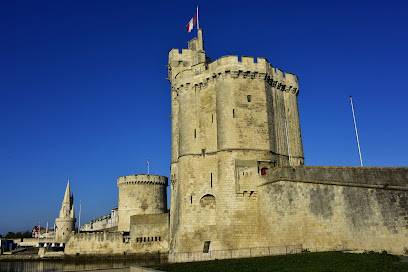
Saint Louis Cathedral
Discover La Rochelle's Cathédrale Saint-Louis: a symbol of resilience with neoclassical architecture and rich historical significance.
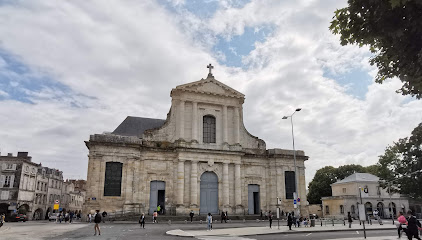
Chain Tower
Explore La Rochelle's maritime history at the iconic Chain Tower, offering panoramic views and fascinating exhibitions on the Old Port.
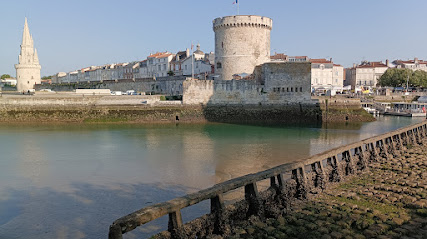
Cloister Of The White Ladies
Discover the serene beauty and rich history of La Rochelle's Cloister of the White Ladies, a tranquil escape in the heart of the city.
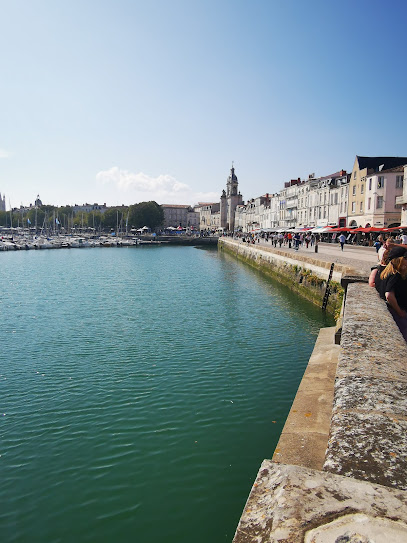
Royal Gate
Discover the Royal Gate in La Rochelle: A historical landmark showcasing maritime heritage and architectural brilliance.
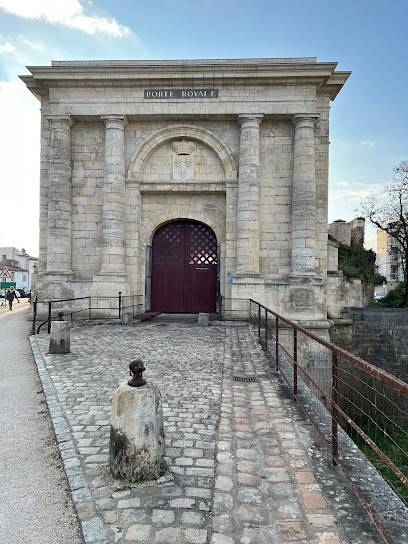
Église Saint-Nicolas
Discover the historic Église Saint-Nicolas in La Rochelle, a testament to the city's resilience and enduring faith, with origins dating back to the 12th century.
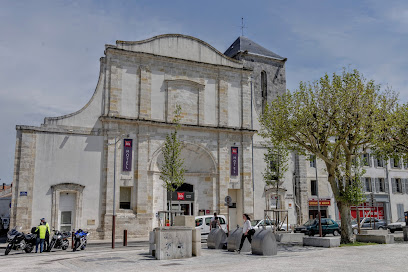
Essential places to dine
Les Fils à Maman La Rochelle
Discover Les Fils à Maman La Rochelle: Where French flavors meet eclectic dining experiences in a charming atmosphere.
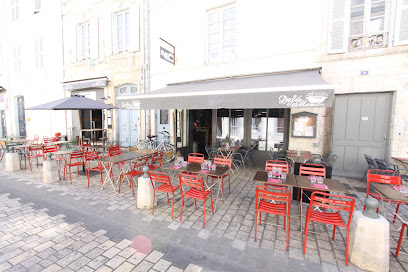
Ragazzi Da Peppone
Experience authentic Italian cuisine at Ragazzi Da Peppone in La Rochelle – home to delicious pizzas and traditional Italian dishes.
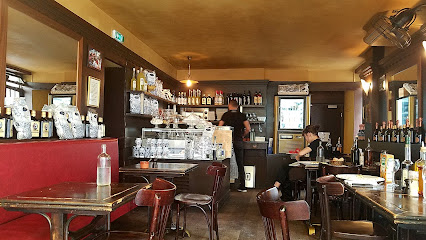
Bar André
Experience authentic French cuisine at Bar André in La Rochelle – where fresh seafood meets traditional brasserie charm.
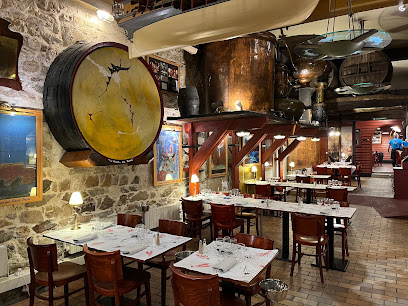
Saveurs Dans L'R
Savor exquisite local cuisine at Saveurs Dans L'R in La Rochelle—where every dish tells a story of flavor and tradition.
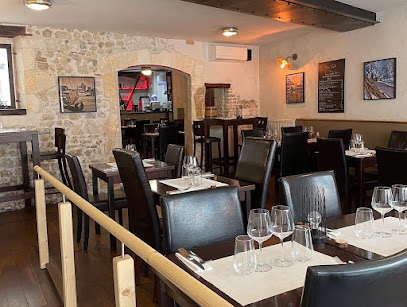
Prao Restaurant
Discover the best of French cuisine at Prao Restaurant in La Rochelle - where every dish tells a story of culinary artistry.
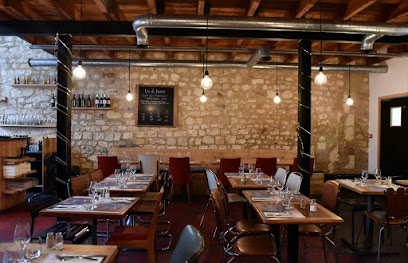
Le Comptoir de Walter
Experience authentic organic French cuisine in La Rochelle at Le Comptoir de Walter - where every dish is a celebration of flavor and sustainability.
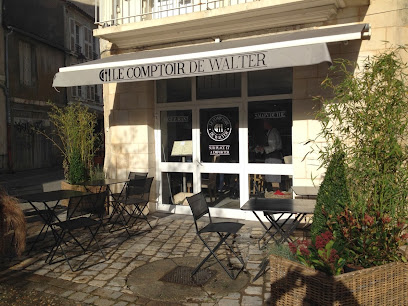
Brasserie Saint Nicolas
Experience authentic French cuisine at Brasserie Saint Nicolas in La Rochelle – a perfect blend of tradition and taste by the water.
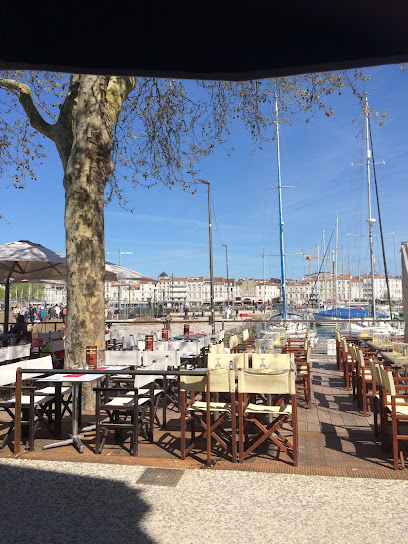
Santosha La Rochelle - Cantine Asiatique
Experience authentic Thai and Asian flavors at Santosha La Rochelle – where delicious meets affordable dining.
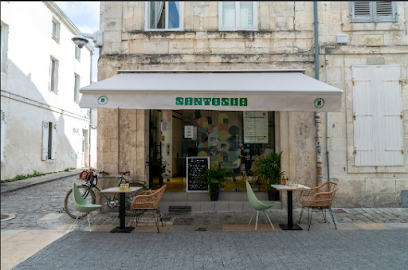
Le Verre Bouteille La Rochelle
Experience the best of French cuisine at Le Verre Bouteille in La Rochelle - where flavor meets tradition in a cozy setting.
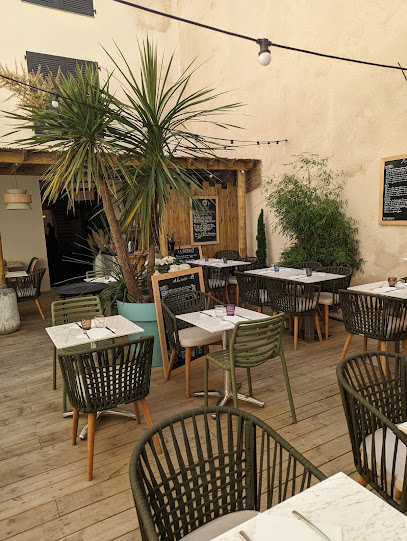
Impressions
Experience haute French cuisine at Impressions in La Rochelle - where tradition meets innovation in every dish.
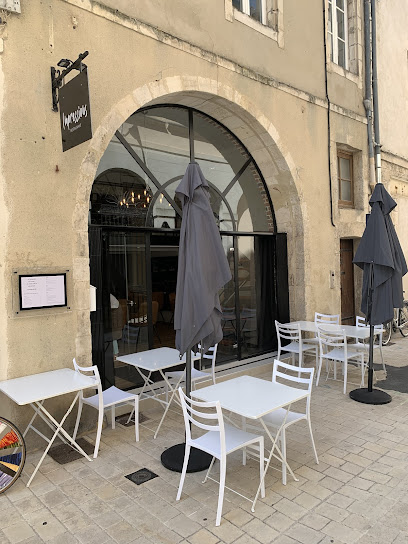
Markets, malls and hidden boutiques
Prao Boutique
Explore Prao Boutique in La Rochelle, where vinyl records meet unique interior decor in a cozy, artistic atmosphere.
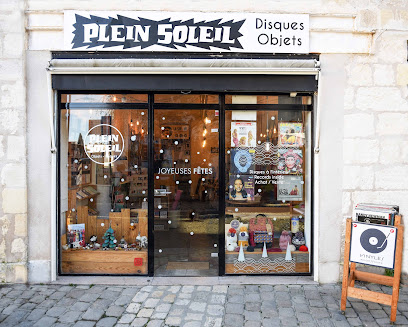
ESPRITVOILES
Explore ESPRITVOILES in La Rochelle for stylish bags that blend quality, functionality, and local craftsmanship.
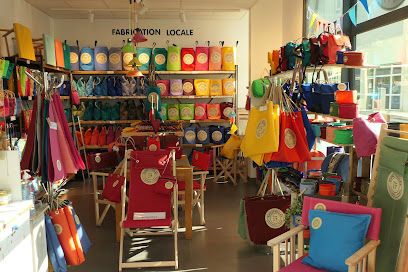
ETC...A
Explore the unique gifts and artisanal creations at ETC...A, La Rochelle's must-visit boutique for souvenirs and decor.
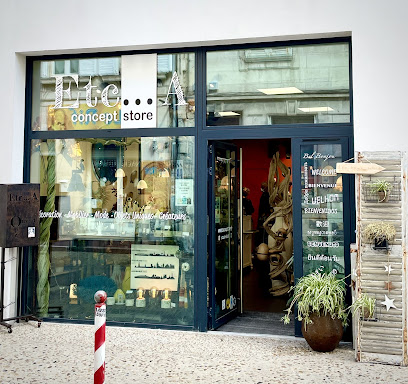
A ton étoile...
Explore A Ton Étoile in La Rochelle for a unique selection of women's fashion, accessories, and leather goods that embody elegance and style.
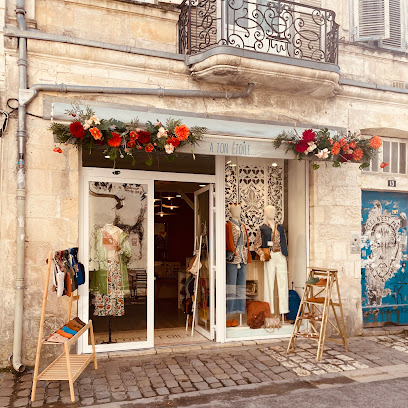
Craft
Explore Craft in La Rochelle for unique fashion accessories that elevate your style with quality craftsmanship and personalized service.
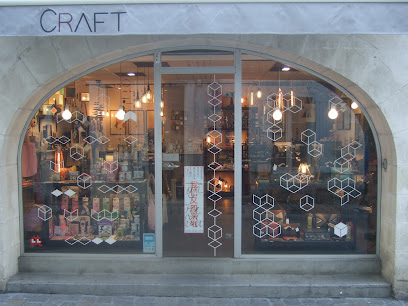
Audalisque
Explore Audalisque in La Rochelle for a unique shopping experience featuring artisanal products and authentic souvenirs that celebrate French craftsmanship.
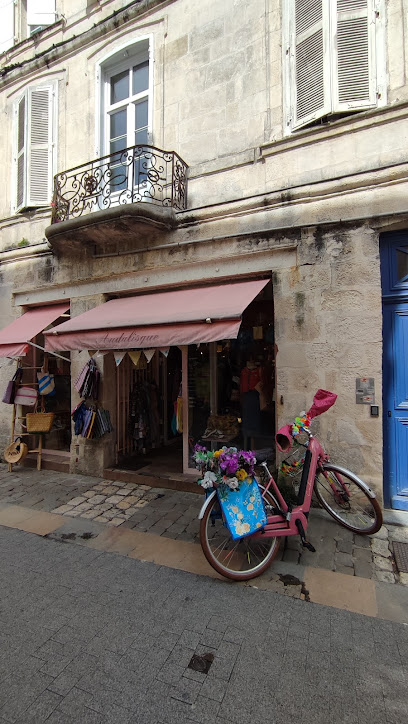
Welta By Paulette
Discover unique women's fashion at Welta By Paulette, the chic boutique in La Rochelle that embodies elegance and style.
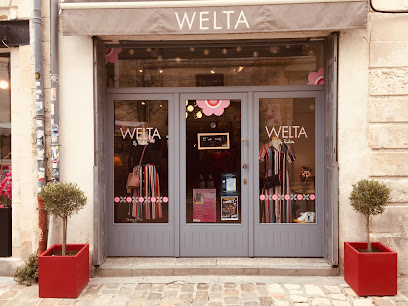
46ieme Latitude
Explore the charm of La Rochelle at 46ieme Latitude, your destination for unique fashion accessories and vintage clothing that tell a story.
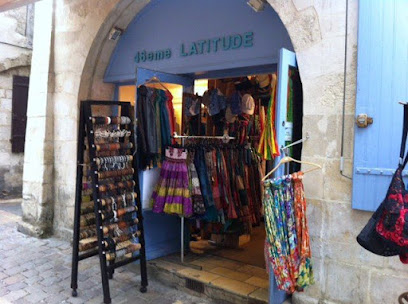
Désordre Chéri
Explore Désordre Chéri, La Rochelle's charming gift shop, featuring unique local treasures and delightful souvenirs that capture the essence of the region.
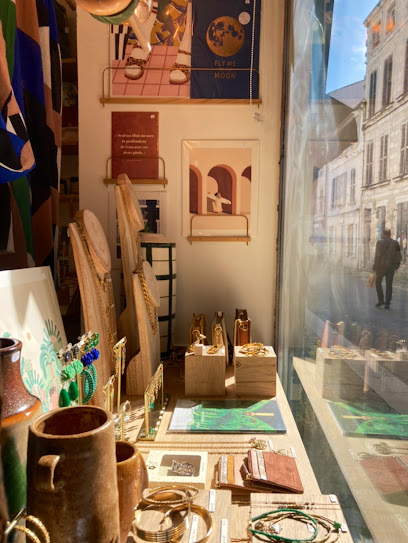
bien à LR
Explore Bien à LR, the quintessential store in La Rochelle for authentic local products and unique souvenirs that capture the essence of France.
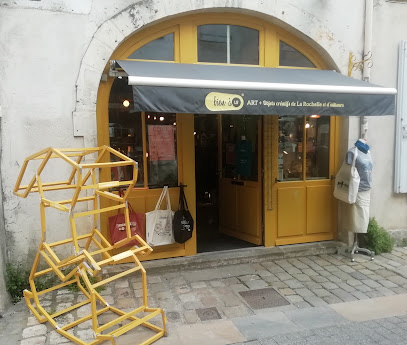
Essential bars & hidden hideouts
The Famous Pub
Experience the lively atmosphere and delicious fare at The Famous Pub in La Rochelle, a perfect stop for beer lovers and food enthusiasts.
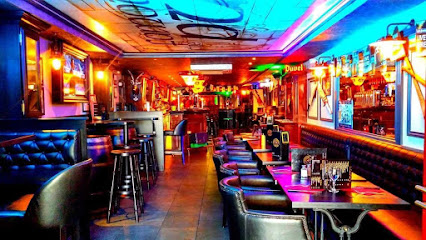
La Guignette
Discover La Guignette, La Rochelle's charming wine bar, offering an exquisite selection of local and international wines in a cozy atmosphere.
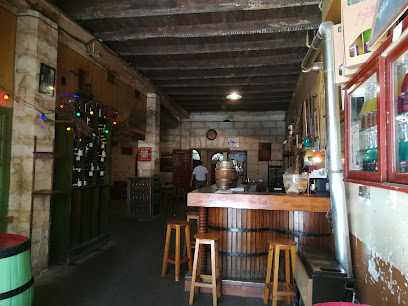
GENERAL HUMBERT'S
Discover the lively General Humbert's in La Rochelle, a charming Irish pub offering excellent drinks, hearty meals, and a vibrant atmosphere.
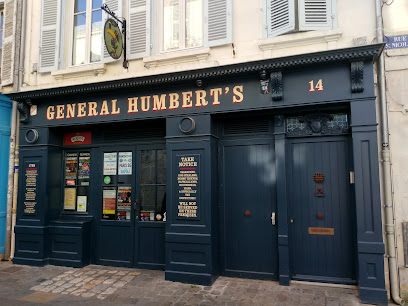
Brasserie Saint Nicolas
Discover the flavors of France at Brasserie Saint Nicolas, a lively brewpub and restaurant in the heart of La Rochelle, where culinary tradition meets vibrant ambiance.
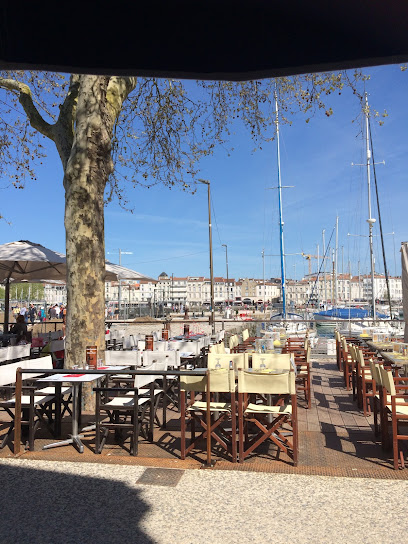
La Scie Rose
Discover La Scie Rose, La Rochelle's vibrant bar offering a blend of local charm and refreshing drinks in a cozy atmosphere.
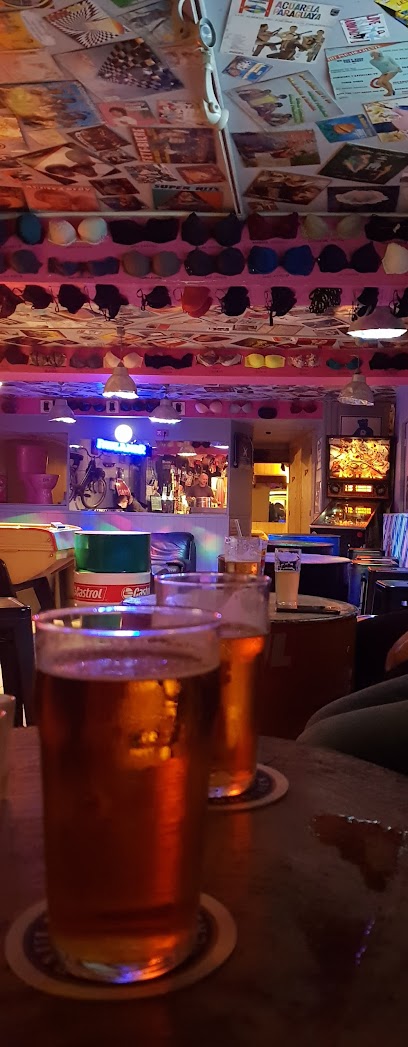
Le Troll Pub
Discover the lively atmosphere and delectable offerings at Le Troll Pub, a must-visit bar and restaurant in scenic La Rochelle.
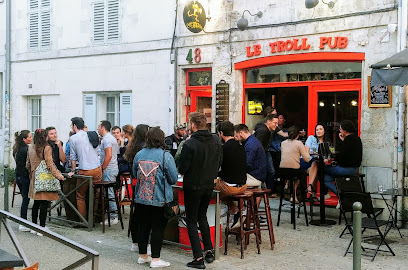
L’Abreuvoir
Discover the charm of L’Abreuvoir, a cozy bar in La Rochelle offering exquisite drinks and a warm ambiance for tourists and locals alike.
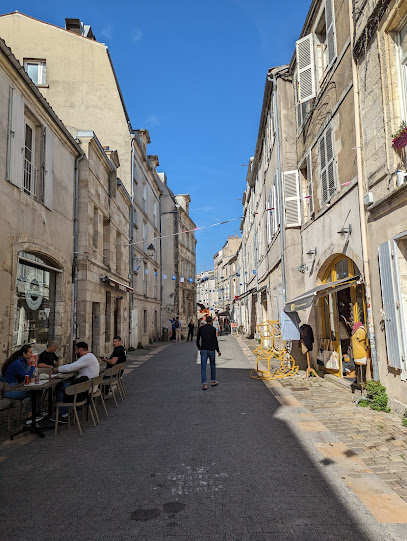
Une Folle Epoque
Experience the vibrant nightlife at Une Folle Epoque, La Rochelle's top tapas bar with cabaret shows and a lively dance floor.
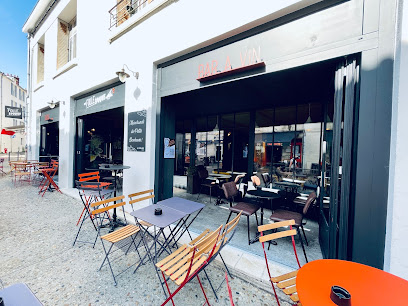
TAPAS
Experience the vibrant essence of Spanish tapas culture at TAPAS in La Rochelle, a must-visit culinary destination for tourists.
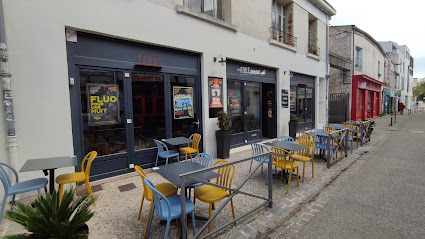
Garcia
Experience the vibrant nightlife at Garcia, a charming bar in La Rochelle, offering exquisite drinks and a welcoming atmosphere.
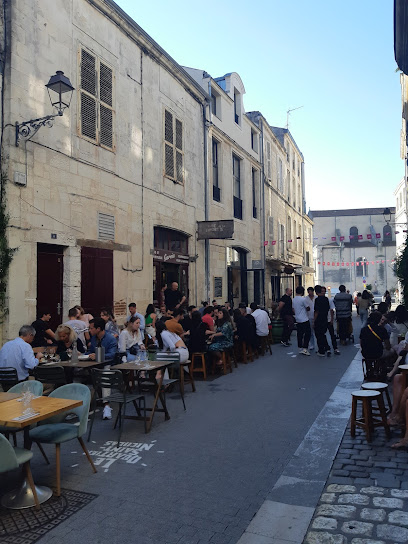
Local Phrases
-
- HelloBonjour
[bohn-zhoor] - GoodbyeAu revoir
[oh ruh-vwahr] - YesOui
[wee] - NoNon
[nohn] - Please/You're welcomeS'il vous plaît/De rien
[seel voo pleh / duh ryehn] - Thank youMerci
[mehr-see] - Excuse me/SorryExcusez-moi/Désolé
[ex-kew-zay mwa / day-zo-lay] - How are you?Comment ça va?
[koh-mohn sah vah] - Fine. And you?Bien. Et vous?
[byen. ay voo] - Do you speak English?Parlez-vous anglais?
[par-lay voo ahn-glay] - I don't understandJe ne comprends pas
[zhuh nuh kohm-prahnd pah]
- HelloBonjour
-
- I'd like to see the menu, pleaseJe voudrais voir la carte, s'il vous plaît
[zhuh voo-dray vwahr lah kart, seel voo pleh] - I don't eat meatJe ne mange pas de viande
[zhuh nuh mahnj pah duh vyand] - Cheers!Santé!
[sahn-tay] - I would like to pay, pleaseJe voudrais payer, s'il vous plaît
[zhuh voo-dray pay-ay, seel voo pleh]
- I'd like to see the menu, pleaseJe voudrais voir la carte, s'il vous plaît
-
- Help!Au secours!
[oh suh-koor] - Go away!Allez-vous en!
[ah-lay vooz ahn] - Call the Police!Appelez la police!
[ah-peh-lay lah poh-lees] - Call a doctor!Appelez un médecin!
[ah-peh-lay ung mayd-sahn] - I'm lostJe suis perdu
[zhuh swee pair-doo] - I'm illJe suis malade
[zhuh swee mah-lahd]
- Help!Au secours!
-
- I'd like to buy...Je voudrais acheter...
[zhuh voo-dray zah-shay] - I'm just lookingJe regarde juste
[zhuh ruh-gahrd zhewst] - How much is it?Combien ça coûte?
[kohm-byen sah koot] - That's too expensiveC'est trop cher
[say troh shair] - Can you lower the price?Pouvez-vous baisser le prix?
[poo-veh voo beh-say luh pree]
- I'd like to buy...Je voudrais acheter...
-
- What time is it?Quelle heure est-il?
[kell ur ay eel] - It's one o'clockIl est une heure
[eel ay eun ur] - Half past (10)Dix heures et demie
[dees ur ay duh-mee] - MorningMatin
[maht-ahn] - AfternoonAprès-midi
[ah-pray mee-dee] - EveningSoir
[swahr] - YesterdayHier
[yehr] - TodayAujourd'hui
[oh-zhoor-dwee] - TomorrowDemain
[duh-mahn] - 1Un
[uhn] - 2Deux
[duh] - 3Trois
[trwah] - 4Quatre
[kah-truh] - 5Cinq
[sank] - 6Six
[sees] - 7Sept
[sept] - 8Huit
[weet] - 9Neuf
[nurf] - 10Dix
[dees]
- What time is it?Quelle heure est-il?
-
- Where's a/the...?Où est...?
[oo ay] - What's the address?Quelle est l'adresse?
[kell ay ladr-ess] - Can you show me (on the map)?Pouvez-vous me montrer (sur la carte)?
[poo-veh voo muh mohn-tray (soor lah kart)] - When's the next (bus)?Quand est le prochain (bus)?
[kahn ay luh proh-shahn (boos)] - A ticket (to ....)Un billet (pour ....)
[uhn bee-ay (poor)]
- Where's a/the...?Où est...?
History of Saint-Nicolas
-
Saint-Nicolas, located within La Rochelle, has deep maritime roots that trace back to the 12th century, when the town became a vital port and trading hub. The Saint-Nicolas neighbourhood developed around the bustling harbor, benefiting from the trade routes that connected France with the Americas and the Caribbean. The area was pivotal in the export of salt, wine, and other goods, which established La Rochelle as a key player in maritime commerce.
-
During the 16th century, La Rochelle became a stronghold of Protestantism in France, and Saint-Nicolas was no exception. The neighbourhood witnessed significant religious tension, exemplified by the pivotal events of the French Wars of Religion. The Protestant community flourished here, and the architecture from this period reflects the aspirations and struggles of its inhabitants, with several churches and meeting places established.
-
The Siege of La Rochelle from 1627 to 1628 was a defining moment in the history of Saint-Nicolas and La Rochelle as a whole. The neighbourhood played a crucial role during this protracted conflict between the Royal forces and the Huguenots. The siege led to significant changes in the political landscape of France, ultimately reinforcing royal authority and diminishing the power of Protestant communities in the region.
-
In the 18th and 19th centuries, Saint-Nicolas underwent an architectural transformation, with the construction of elegant bourgeois homes and public buildings that showcased the wealth generated from trade. The influence of neoclassical design is prevalent in the area's architecture, reflecting the broader trends occurring in France during this period. The neighbourhood's layout and buildings tell a story of prosperity and social development.
-
In the late 20th and early 21st centuries, Saint-Nicolas has experienced a cultural renaissance, revitalizing its historical character while adapting to modern needs. The area is now home to a vibrant community of artists, cafes, and cultural events, reflecting the blending of La Rochelle's rich past with contemporary life. Festivals celebrating maritime heritage and local traditions are common, bringing together residents and visitors alike.
Saint-Nicolas Essentials
-
Saint-Nicolas is easily accessible from other neighbourhoods in La Rochelle. If you're arriving by train, La Rochelle's main train station is a short distance from Saint-Nicolas. Local buses also connect the neighbourhood to the station and other parts of the city. For those driving, there are various public parking options available in and around Saint-Nicolas.
-
Saint-Nicolas is a compact neighbourhood, making it ideal for walking. Bicycles are a popular mode of transport, and bike rentals are readily available. Public transport, including buses, operates frequently, providing connections to other parts of La Rochelle. For added convenience, taxis and rideshare services are also available.
-
Saint-Nicolas is generally a safe area for tourists. However, it's wise to remain vigilant, especially in crowded places. Avoid poorly lit streets at night and keep personal belongings secure. While there are no specific high-crime areas targeting tourists, exercising caution in busy tourist spots is advisable.
-
In case of emergency, dial 112 for immediate assistance. This number connects you to police, fire, and medical services. Local police stations and medical facilities are present in La Rochelle. It's advisable to have travel insurance that covers emergencies, and pharmacies can be found throughout the neighbourhood for minor health issues.
-
Fashion: Do dress appropriately for the weather, and wear comfortable shoes for walking. Don’t wear overly casual attire when dining in upscale restaurants. Religion: Do be respectful of local customs, especially when visiting churches. Public Transport: Do offer your seat to the elderly. Don’t eat or drink on public transport. Greetings: Do greet locals with a friendly 'Bonjour.' Don’t forget to say 'Merci' when receiving help. Eating & Drinking: Do try local seafood specialties and enjoy outdoor dining. Don’t waste food, as it is considered rude.
-
To experience Saint-Nicolas like a local, explore the vibrant markets where fresh produce and local delicacies are sold. Visit the charming cafés and bistros that offer traditional French cuisine. Engage with locals at parks or local events to learn more about their culture and lifestyle. Don’t miss the picturesque harbor views, especially at sunset, for a truly memorable experience.
Nearby Cities to Saint-Nicolas
-
Things To Do in Nantes
-
Things To Do in Angers
-
Things To Do in Bordeaux
-
Things To Do in Limoges
-
Things To Do in Tours
-
Things To Do in Rennes
-
Things To Do in Saint-Malo
-
Things To Do in San Sebastián
-
Things To Do in Caen
-
Things To Do in St. Clement
-
Things To Do in St. Helier
-
Things To Do in Gorey
-
Things To Do in St. Aubin
-
Things To Do in St. Brelade
-
Things To Do in St. Peter











